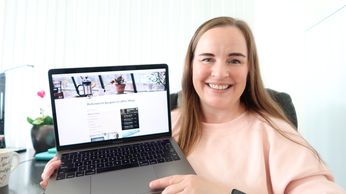
How to make the most of practitioner conferences after arriving home...
So you recently attended a practitioner-oriented conference for professionals working in the post-secondary sector…
Now what?
Hopefully, it was a fun and rejuvenating experience reconnecting with longtime colleagues and/or making new ones. Particularly after several years spent apart during a global pandemic.
This reflects an important aspect of what makes conference participation so valuable. Finding and reconnecting with one’s professional communities can be energy-giving, which is great for motivation and well-being.
Of course, the value of practitioner-oriented conferences extends well beyond this important aspect. Attendees can anticipate opportunities to:
- Engage with new ideas, concepts, and knowledge pertaining to trending topics in the field,
- Learn about “tried and tested” initiatives at other institutions that might be adapted to respond to apparent needs at one’s own college or university,
- Make meaningful connections with individuals undertaking comparable work and/or serving in roles they aspire to,
- Access spaces and networks offering community and mentorship to those navigating the field while identifying as members of racialized and/or other equity deserving/denied groups.
- Interact with recent research findings presented by scholars in this field.
And of course, you can apply to present a session- supporting collective learning while furthering your communication skills. A byproduct of doing so is promoting the good work and efforts of your institution. Inevitably, this contributes to positive perceptions of the latter as a “leader” or “innovator” in the field.
As a conference participant, you likely already know these things. This summary is meant to stimulate your thinking re: how you perceive the value of your conference participation. Also, to provide some external commentary you can point to if/when seeking to convey this value to others.
Naturally, there are associated expenditures- in the form of association memberships, registration fees, and travel/accommodation. Attendees typically participate during paid work hours (as they should), meaning that participation reflects an employer’s willingness to direct staff-related resources towards the event.
So how might you maximize your overall conference experience?
This post focuses on what you can do post-conference; I plan to write more about preparing for conferences in a future post.
Participation, in and of itself, will likely generate good value for you. Actions taken post-conference, however, tend to have a multiplier effect.
For example:
You might consider journaling or chatting with colleagues to further clarify what you valued most about your experience. Revisiting the conference schedule and/or any notes taken can help with recall.
Sample prompts:
- Which sessions, conversations, and/or interactions come to mind first?
- Who or what helped you to think in new and/or different ways?
- Are there new ideas or initiatives that your institution ought to explore?
- Did you come across any literature, media, or other resources that you’d like to engage with and/or share with colleagues?
- Who do you want to stay connected to/follow-up with?
- Anything you’d like to carry forward when planning internal professional development opportunities at your institution?
Next, you might take some time to identify and prioritize post-conference action items- for yourself, or perhaps as a group of colleagues.
- You might use a “S.M.A.R.T. goals” approach (Doran, 1981), your calendar and/or other accountability tools (or an accountability partner) to make things happen.
Finally, it’s always a good idea to indicate to others (including students) when you are drawing from knowledge gained as a result of conference participation. Doing so can:
- Support how professional development is perceived in terms of budget priority,
- Recognize the role of student-provided financial resources in enabling participation,
- Inspire additional staff to want to participate in the future!
You might also consider sharing conference-related feedback with the person(s) who supported your participation (e.g., a supervisor).
- This could take the form of a written note of appreciation or a conversation.
- Your feedback could potentially inform subsequent decision-making re: professional development.
All of this comes with a bonus: when colleagues perceive you as keen to learn, and likely to implement and/or share knowledge and ideas… additional opportunities might come your way.
So thinking back to your most recent conference, what are 1-3 post-conference action items that you’d like to set as goals for yourself?
I’d love to hear about any of your post-conference wins when you have them.
Until then, wishing you a beautiful start to summer!
-Jacquie
P.S. A huge thanks and shoutout to Jen Hamilton and the folks at CACUSS for hosting yet another informative and fun event this year! I greatly appreciated the opportunity to share preliminary findings with research stakeholders. Kudos to you for all of your hard work and efforts!
References
Doran, G.T. (1981) There’s a SMART way to write management’s goals and objectives. Management Review, 70, 35-36.
Jacqueline Beaulieu Newsletter
Join the newsletter to receive the latest updates in your inbox.


